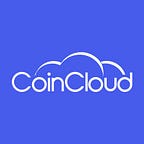Bitcoin Liquidity
How Liquid is Bitcoin?
The word “liquidity” applies to assets, and is an important measure in the financial world — but it’s also a little complex. People often ask, “How liquid is Bitcoin?” And the answer depends on a few things.
Let’s take a look at this concept, and discover what makes an asset more or less liquid.
What is Liquidity?
“Liquidity refers to the ease with which an asset, or security, can be converted into ready cash without affecting its market price,” explains Investopedia. “In other words, liquidity describes the degree to which an asset can be quickly bought or sold in the market at a price reflecting its intrinsic value. Cash is universally considered the most liquid asset because it can most quickly and easily be converted into other assets. Tangible assets, such as real estate, fine art, and collectibles, are all relatively illiquid.”
Another aspect of liquidity is the bid-ask spread (a.k.a. bid-ask or sell spread), which is the gap between the asking price and the selling price. “The bid-ask spread is essentially the difference between the highest price that a buyer is willing to pay for an asset and the lowest price that a seller is willing to accept,” Investopedia clarifies.
Think eBay … a handbag might be listed for $100 with a “Best Offer” option. The potential buyer offers $75 and the seller comes back with a counter-offer of $80. So the bid-ask spread is $5.
A lower bid-ask spread is more liquid than a higher one, because the transaction happens right away (like if the buyer takes the counter-offer and willingly pays $80 for the handbag).
If the buyer only wants to pay $20 for a collectible ceramic cat, but the seller won’t let it go for less than $50, it has a $30 sell spread and is not considered very liquid.
Bitcoin Liquidity
So then, where does Bitcoin fit into the equation?
Well, Bitcoin is less liquid than cash, but more liquid than a rare painting that needs to be evaluated, appraised, and sold to a buyer who appreciates its value, which could take some time. If you want to buy a new TV, you can get it easily with cash or debit card. You likely can’t trade the painting for it, but you could sell the painting and use the cash.
If the TV costs $1,200 and the painting is appraised at $5,000, you should be able to sell the painting and buy the TV. But you need to find a buyer willing to pay $5,000. Maybe you know somebody who is willing to pay $2,000 cash for the painting and not a penny more. You then have to decide whether to sell it at a loss, or wait (without the TV) for the right buyer to come along.
On the other hand, if you have $1,500 worth of bitcoin, you can cash it out pretty quickly at bitcoin’s current price. So that’s pretty liquid. But you have to wait for an online exchange to transfer it to your bank account, or use a Bitcoin ATM and get your cash in about 10 to 15 minutes. The transaction has to be verified on the blockchain, so it takes a little longer than USD, but not that much.
Supply and Demand
Most of this boils down to supply and demand. The sell spread will be lower (and the item more liquid) if the product is in demand. Fiat currency is very liquid because it’s always in demand and always worth a given value or price.
Bitcoin also has a market value and accepted price. If you want to sell your bitcoin, you can be guaranteed that it will be at that day’s posted price (minus any exchange rates or fees, of course).
However, Bitcoin’s short-term volatility makes it less liquid than a more stable asset. As time goes on and it becomes more accepted as a currency at retailers, we will see its liquidity increase. More mainstream adoption, fueled by more Bitcoin ATMs in more accessible locations, will also increase liquidity.
Probably the best way to take advantage of bitcoin liquidity is with a sell-capable Bitcoin ATM like a Coin Cloud BTM. Keep in mind, 80% of Bitcoin ATMs don’t let you cash out … but 100% of Coin Cloud machines do. Find your nearest Coin Cloud Bitcoin ATM and see how liquid your bitcoin can be!
Disclaimer: The information and views supplied by Coin Cloud are for educational and entertainment purposes only. We are not financial advisors, so please do your research and consult with a trusted financial specialist before investing your money.
What is Coin Cloud?
Founded in 2014 in Las Vegas, Nevada, Coin Cloud is the world’s leading digital currency machine (DCM) company. With over 1,600 locations nationwide, in 47 states and Brazil, Coin Cloud operates the world’s largest and fastest-growing network of 100% two-way DCMs, a more advanced version of the Bitcoin ATM. Every Coin Cloud DCM empowers you to quickly and easily buy and sell 30+ virtual currency options with cash. You can find your nearest Coin Cloud DCM here.
